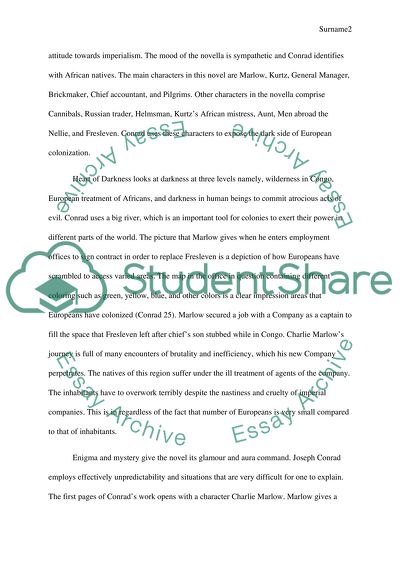Cite this document
(“Conrad's Heart of Darkness Essay Example | Topics and Well Written Essays - 2000 words”, n.d.)
Retrieved from https://studentshare.org/english/1453267-conrad-s-heart-of-darkness
Retrieved from https://studentshare.org/english/1453267-conrad-s-heart-of-darkness
(Conrad'S Heart of Darkness Essay Example | Topics and Well Written Essays - 2000 Words)
https://studentshare.org/english/1453267-conrad-s-heart-of-darkness.
https://studentshare.org/english/1453267-conrad-s-heart-of-darkness.
“Conrad'S Heart of Darkness Essay Example | Topics and Well Written Essays - 2000 Words”, n.d. https://studentshare.org/english/1453267-conrad-s-heart-of-darkness.


